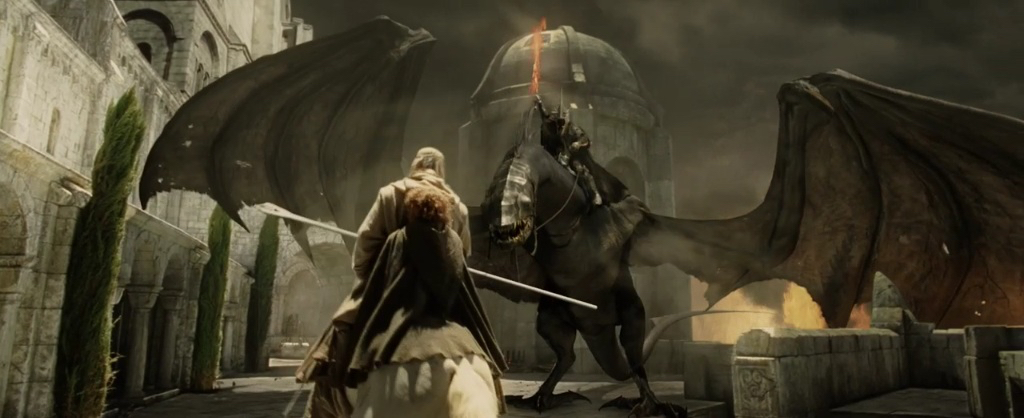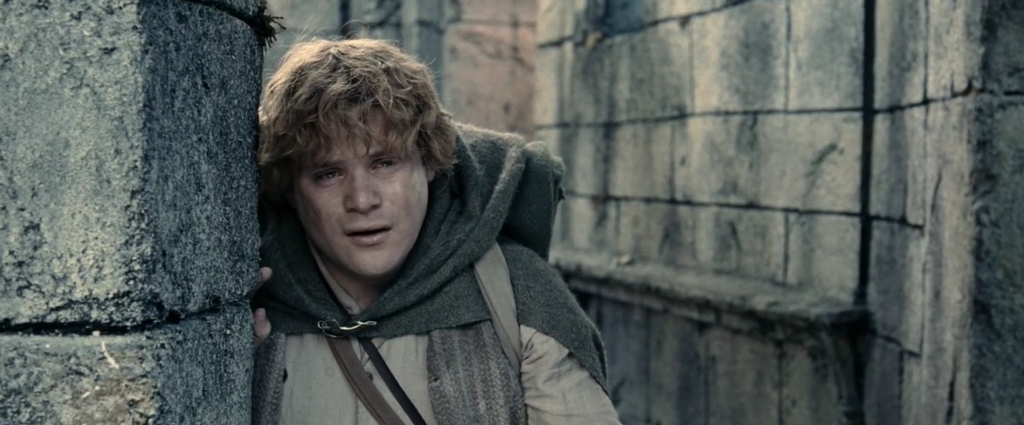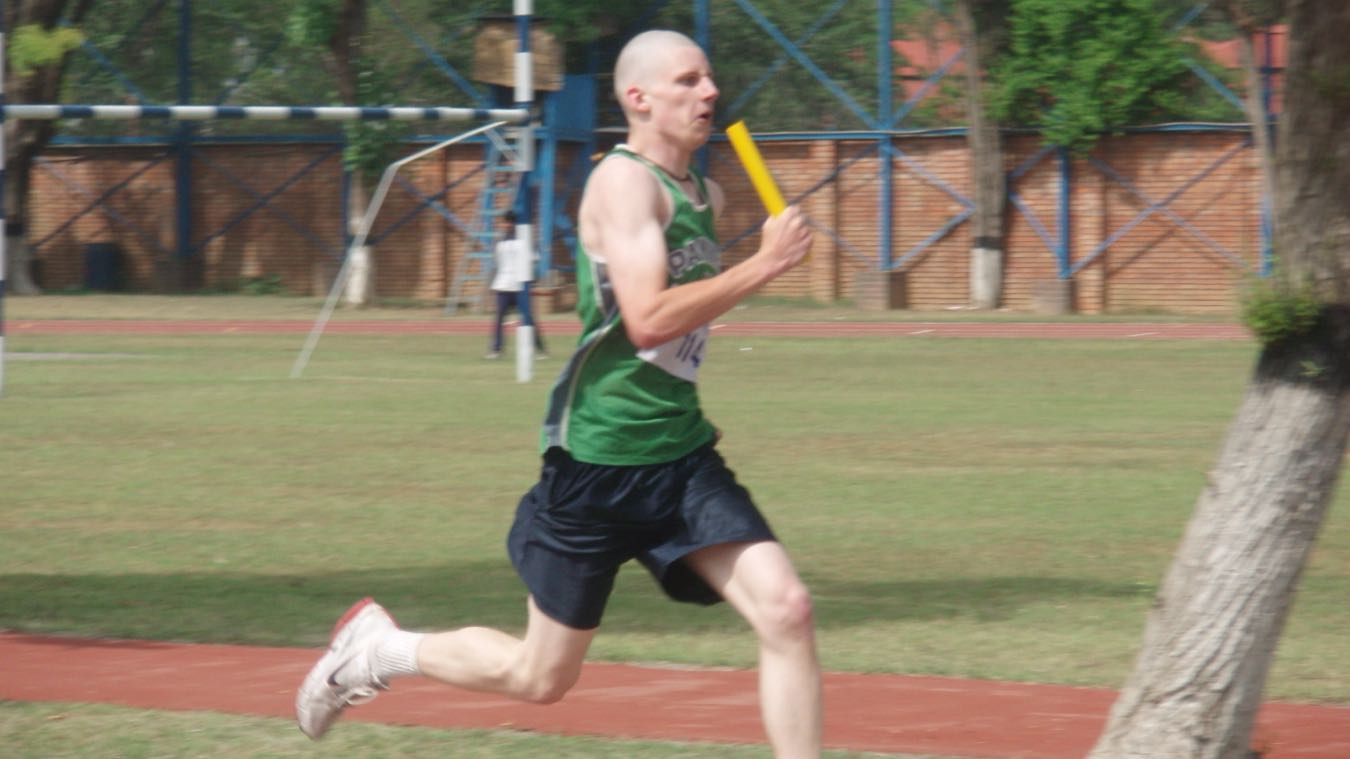When I last posted I was nearing the end of The Two Towers. I’ve finished The Return of the King now, and I’m working on the appendices. And yes, I’m going to write about The Lord of the Rings again. (Don’t be surprised if this ends up becoming a series.)
Something I’ve noticed this time through the books and the movies, more than before, is the theme of despair. I saw looks of despair and horror on characters’ faces time and time again, as things go from bad to worse. I saw characters lose all hope in the face of overwhelming odds—Denethor is the prime example of this. Even Sam, arguably the most courageous and hopeful character of them all, begins to doubt that, even if he and Frodo make it to Mount Doom, there will be a return journey.
Despair is a key weapon of the Dark Lord. His nine deadliest servants are masters of driving their enemies to fear and despair:
In vain men shook their fists at the pitiless foes that swarmed before the Gate. Curses they heeded not, nor understood the tongues of western men, crying with harsh voices like beasts and carrion-birds. But soon there were few left in Minas Tirith who had the heart to stand up and defy the hosts of Mordor. For yet another weapon, swifter than hunger, the Lord of the Dark Tower had: dread and despair.
The Nazgûl came again, and as their Dark Lord now grew and put forth his strength, so their voices, which uttered only his will and his malice, were filled with evil and horror. Ever they circled above the City, like vultures that expect their fill of doomed men’s flesh. Out of sight and shot they flew, and yet were ever present, and their deadly voices rent the air. More unbearable they became, not less, at each new cry. At length even the stout-hearted would fling themselves to the ground as the hidden menace passed over them, or they would stand, letting their weapons fall from nerveless hands while into their minds a blackness came, and they thought no more of war; but only of hiding and of crawling, and of death.
Or take the words of the Witch-king, the greatest of the Nine, to Gandalf, when they come face to face on the streets of Minas Tirith:
Do you not know death when you see it, old man? This is my hour. … You have failed. The world of Men will fall.
Cloaked in black, faceless, mounted on winged steeds, with piercing cries that drive man and beast to madness and despair, the Nazgûl are pure evil. I can think of no better picture of our own opponents.
For we are not fighting against flesh-and-blood enemies, but against evil rulers and authorities of the unseen world, against mighty powers in this dark world, and against evil spirits in the heavenly places.
Ephesians 6:12
And like the Nazgûl, one of their favorite weapons is despair. Despair that the evil in the world could ever be made right. Despair that the evil in us could ever be made right.
Take these two songs. The first is a poem written by Henry Wadsworth Longfellow during the Civil War. It has become the Christmas carol, “I Heard the Bells on Christmas Day.” (By the way, the Casting Crowns version of this is awesome.) It tells the story of the competing sounds of the church bells ringing for Christmas day, and the cannons being fired in nearby battlefields. As the cannons drown out the bells, he loses hope.
And in despair I hung my head
“There is no peace on earth,” I said
“For hate is strong and mocks the song
Of peace on earth, goodwill to men”
But it doesn’t end there. Listen to the finale:
Then pealed the bells more loud and deep
God is not dead, nor doth he sleep
The wrong shall fail, the right prevail
With peace on earth, goodwill to men
The other is the well-known hymn, “Before the Throne of God Above.” Here is the second verse:
When Satan tempts me to despair
And tells me of the guilt within
Upward I look and see him there
Who made an end of all my sin
Because the sinless Savior died
My sinful soul is counted free
For God the just is satisfied
To look on him and pardon me
In the midst of despair, hope shines through. Indeed, we have more reason to hope than the free peoples of Middle-earth did. Because we know that God is firmly in control, and Jesus already won the decisive victory at the cross and at the tomb. And while the war rages on, we await the return of the King, when he will finish the enemy and establish his reign forever.
Then I saw heaven opened, and a white horse was standing there. Its rider was named Faithful and True, for he judges fairly and wages a righteous war. … The armies of heaven, dressed in the finest of pure white linen, followed him on white horses. …
Then I saw the beast and the kings of the world and their armies gathered together to fight against the one sitting on the horse and his army. And the beast was captured, and with him the false prophet who did mighty miracles on behalf of the beast. … Both the beast and his false prophet were thrown alive into the fiery lake of burning sulfur. Their entire army was killed by the sharp sword that came from the mouth of the one riding the white horse.
Revelation 19:11-21
Then I saw a new heaven and a new earth, for the old heaven and old earth had disappeared. And the sea was also gone. And I saw the holy city, the new Jerusalem, coming down from God out of heaven like a bride beautifully dressed for her husband.
I heard a loud shout from the throne, saying, “Look, God’s home is now among his people! He will live with them, and they will be his people. God himself will be with them. He will wipe every tear from their eyes, and there will be no more death or sorrow or crying or pain. All these things are gone forever.”
And the one sitting on the throne said, “Look, I am making everything new!”
Revelation 21:1-5
Or, as Théoden says to his niece before leading the Rohirrim to the aid of Minas Tirith, “You shall live to see these days renewed, and no more despair.”
Going back to that scene where the Witch-king confronts Gandalf: Gandalf is thrown from his horse, and his staff explodes in his hands. Even as the Witch-king raises his sword to strike, a horn is heard. The horns of Rohan.
As the Rohirrim come over the hill, with the rising sun, and look at the vast army of Orcs before them, Théoden gives his six thousand horsemen a rousing speech, building to the most epic charge in movie history. One line sticks out to me, in the face of despair:
Forth, and fear no darkness!



